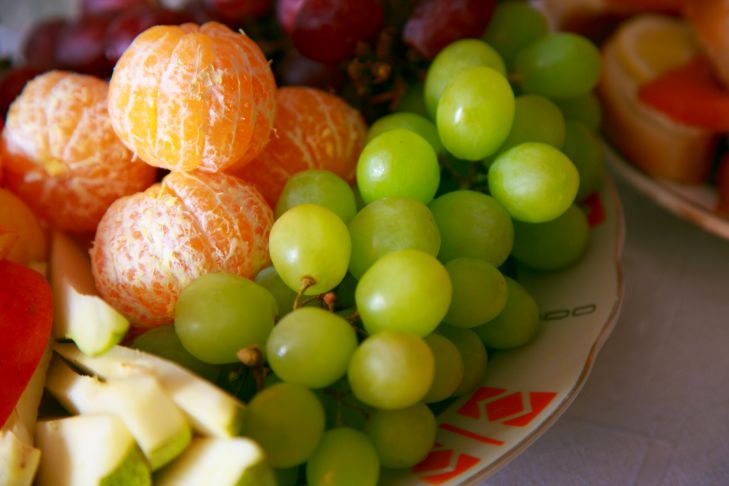Diet During Menopause: Foods to Eat and Foods to Avoid
From food cravings to hot flashes, menopause brings with it a host of physical and emotional changes that can be confusing at best and debilitating at worst.
One of the most frustrating aspects of menopause is figuring out which foods you should eat and which ones you should avoid because they may trigger uncomfortable symptoms.
We'll tell you what foods you should eat during menopause, and we'll also give you some information about what foods you should avoid.
What Happens During Menopause
A woman's body goes through a lot of changes during menopause. Not only do hormone levels fluctuate, but women have to deal with new symptoms like hot flashes and night sweats.
While you can't control your hormones, you can focus on small changes in your diet that will help minimize some of these symptoms and improve your overall well-being.

While it is a natural part of aging, its symptoms can be unpleasant.
Menopause means your body stops producing hormones that allow you to get pregnant.
Additionally, during menopause, your ovaries stop releasing eggs and your monthly menstrual cycle comes to an end.
Your menstrual cycle usually begins during puberty and ends around age 50 or 51. During these years, your body produces large amounts of estrogen, progesterone, and other reproductive hormones.
Symptoms of Menopause
It is known that during menopause many symptoms may appear, including hot flashes, night sweats, sleep disturbances.
However, an even more common consequence of menopause is significant weight gain, caused by increased appetite and decreased physical activity.
The main reason for weight gain during menopause is hormonal changes in women as they age.
Hormones are chemical messengers that enter our bloodstream and tell cells how to behave.
During ovulation, hormones also cause an increase in appetite and a decrease in physical activity, which makes sense from an evolutionary perspective because if we are not hungry and moving, we are not burning calories or finding food. Therefore, we are more likely to survive long enough to reproduce.
Although women most often experience menopause between the ages of 40 and 50, it can also occur earlier or later in life.
During perimenopause (the years leading up to menopause), a woman's ovaries may stop releasing eggs regularly.
Hormone production fluctuates and leads to fertility problems that may require medications or other interventions before she can conceive.
Foods to eat
During menopause, it is important to avoid irritability and hot flashes. To do this, you need to avoid certain types of foods while eating healthier foods. Some healthy foods to eat during menopause include:
Fruits and Vegetables: Brightly colored fruits and vegetables are rich in vitamins, minerals, fiber, antioxidants, phytochemicals, carotenoids, and flavonoids that help support heart health.
Fatty fish. Some types of fatty fish, including herring, mackerel, salmon, and tuna, are high in omega-3 fatty acids. They can help lower cholesterol, reduce the risk of heart disease, and improve overall health by reducing inflammation throughout the body.
"Cooling foods." Include more cooling foods in your diet, such as cucumbers, apples, broccoli, eggs, green tea, and salad. This will help you stay cool during menopause. According to Women's Health, cooling foods are best eaten raw or lightly cooked with little or no added fat.
Water: Dehydration can cause your body temperature to spike and cause hot flashes. Aim for at least eight glasses of water a day. Keep track of how much you drink throughout the day. If you're constantly thirsty, you may be dehydrated.
Foods to Avoid
It is normal to have some adverse reactions to certain foods, but during menopause there are a few categories that everyone should avoid. These foods are likely to cause problems.
Spicy foods: Spicy foods are a nuisance for many women during menopause due to the frequent problems of heartburn. Additionally, spicy foods cause sweating, headaches, and depression due to their bioavailability affecting the serotonin levels in our brain, which leads to an imbalance that causes mood swings. Make sure you avoid foods like hot peppers, jalapenos, and cayenne pepper during menopause.
Alcohol. Many women do not tolerate alcohol well during menopause. They may experience symptoms of anxiety, insomnia, dizziness, and nausea. If you already struggle with these symptoms regularly, it is best to abstain from drinking alcohol during menopause. It will only make matters worse. If you plan to drink, stick to one drink per day.
Fatty foods. Some women find that fatty foods make menopause symptoms worse. These symptoms include hot flashes, night sweats, and weight gain. If you notice these symptoms due to fatty foods, it is best to avoid them during menopause.
Instead, choose leaner meats like chicken breast or salmon, which have less fat. Also, choose low-fat dairy products like skim milk and low-fat yogurt over whole milk and full-fat yogurt.
The Importance of Improving Your Diet During Menopause
A natural diet during menopause can help prevent hot flashes, night sweats, and other menopause symptoms. Eating a variety of nutritious foods is beneficial for overall health during perimenopause (the time just before menopause) and menopause.
A poor diet can cause a variety of unpleasant symptoms. You can find relief by eating foods that contain the nutrients your body is lacking. A high-fiber diet rich in fruits and vegetables helps keep your digestive system running smoothly.
Including small, frequent meals and snacks also helps prevent blood sugar drops that can cause hot flashes.
Eating whole foods has many health benefits and is always better than following a fad diet.
If you experience frequent symptoms, try tracking your daily intake, writing down everything you eat and drink for a few days to get an idea of what might be causing you problems.
Earlier, the doctor told when it is best to drink kefir.
